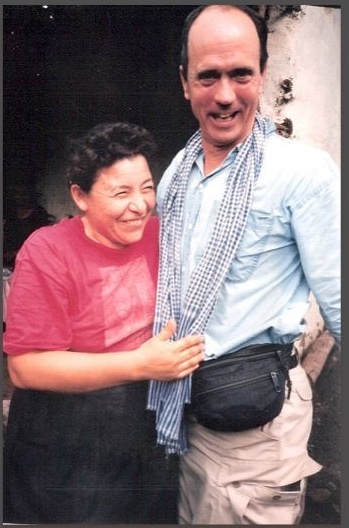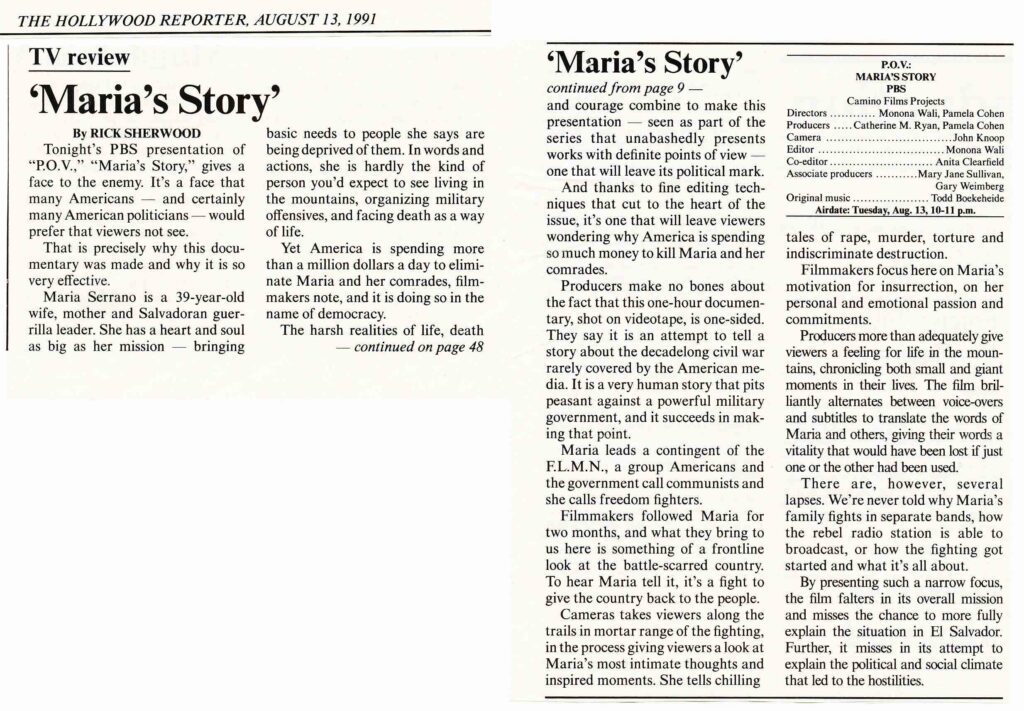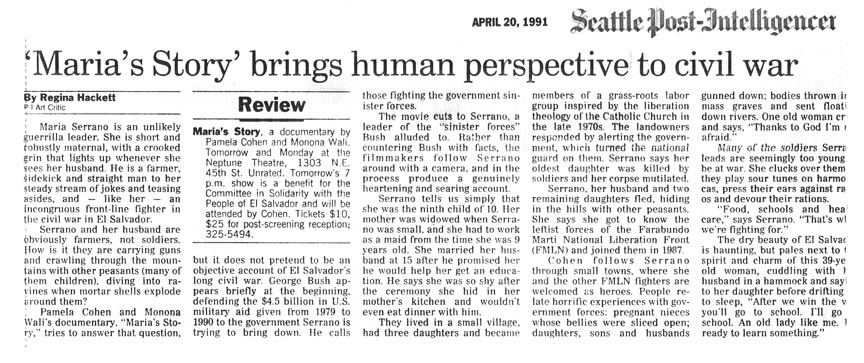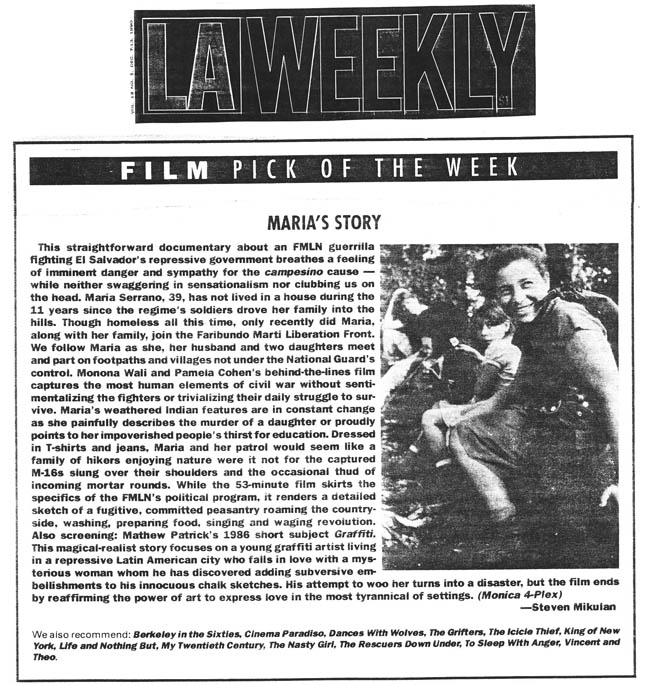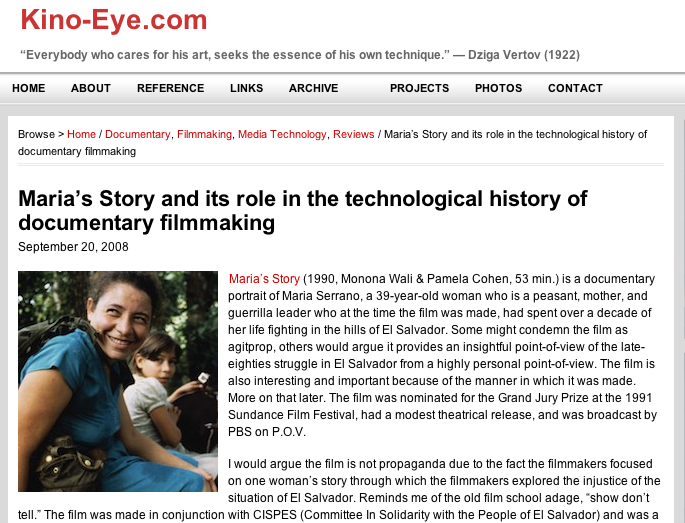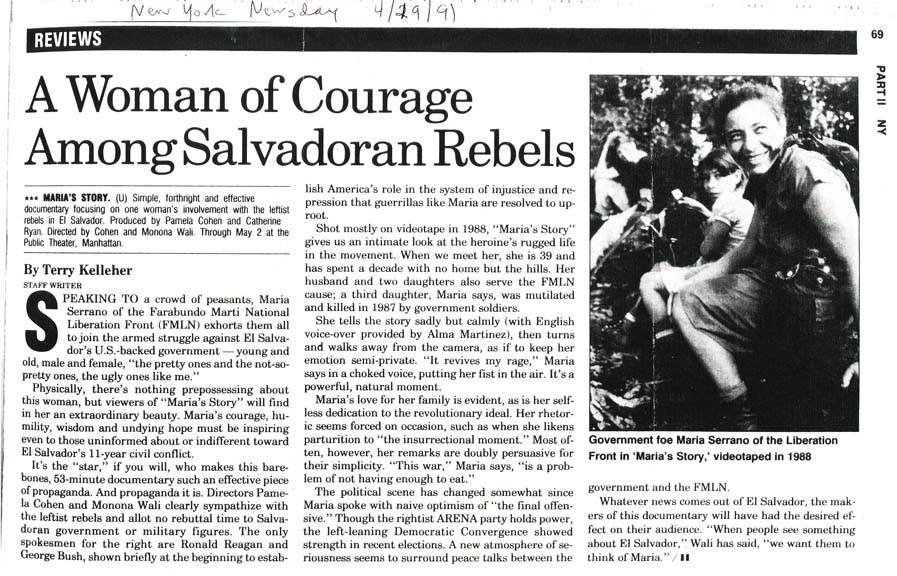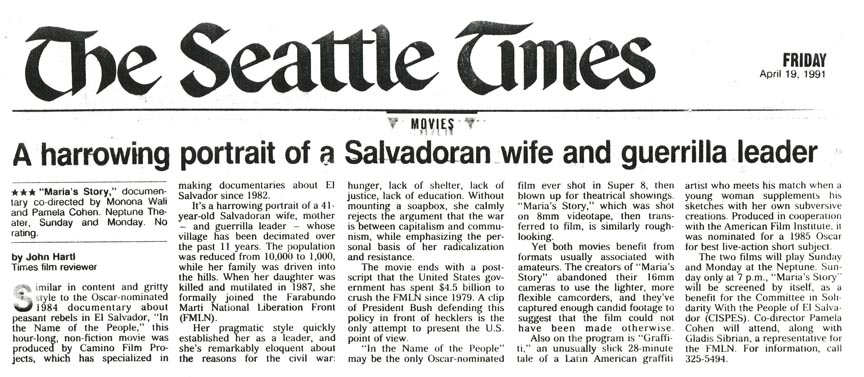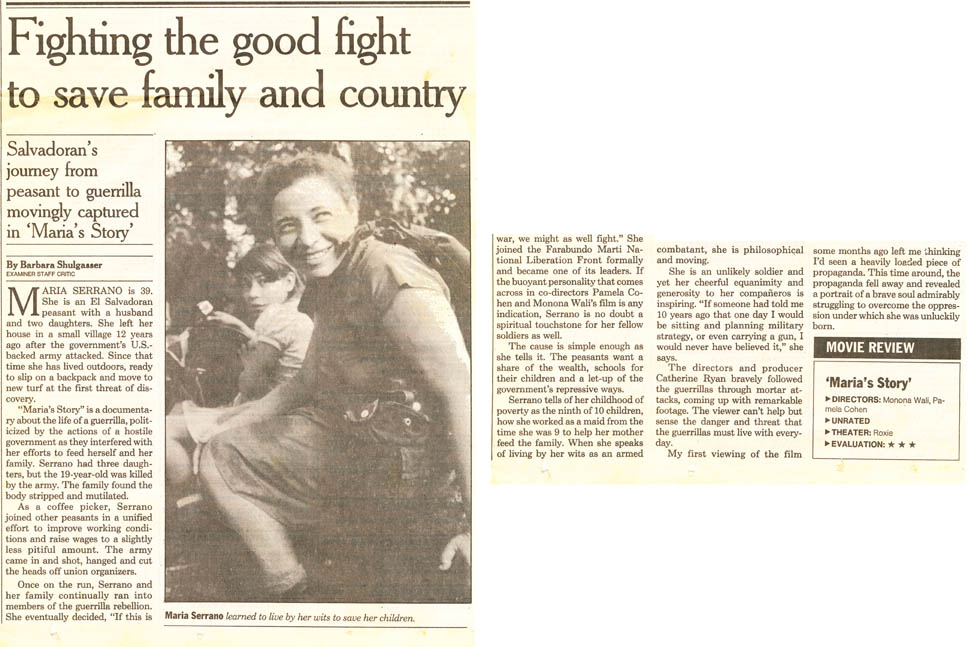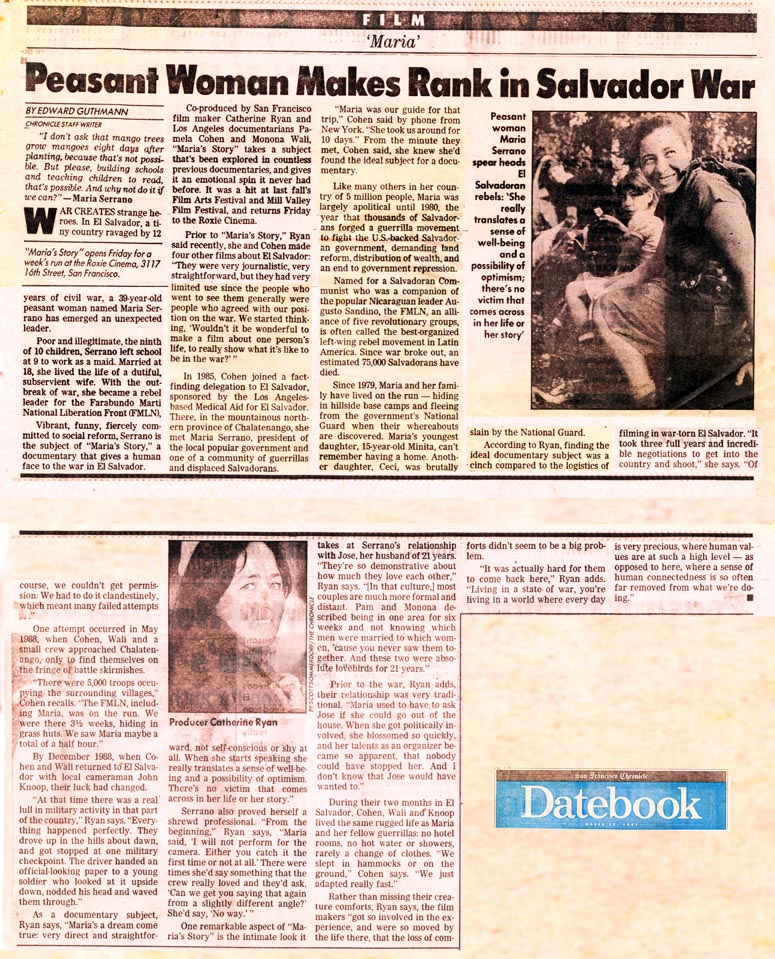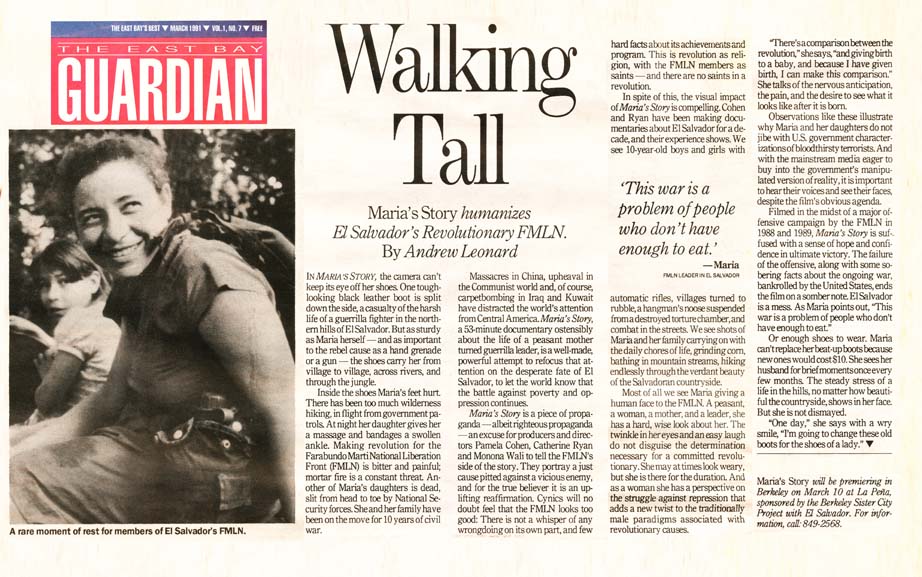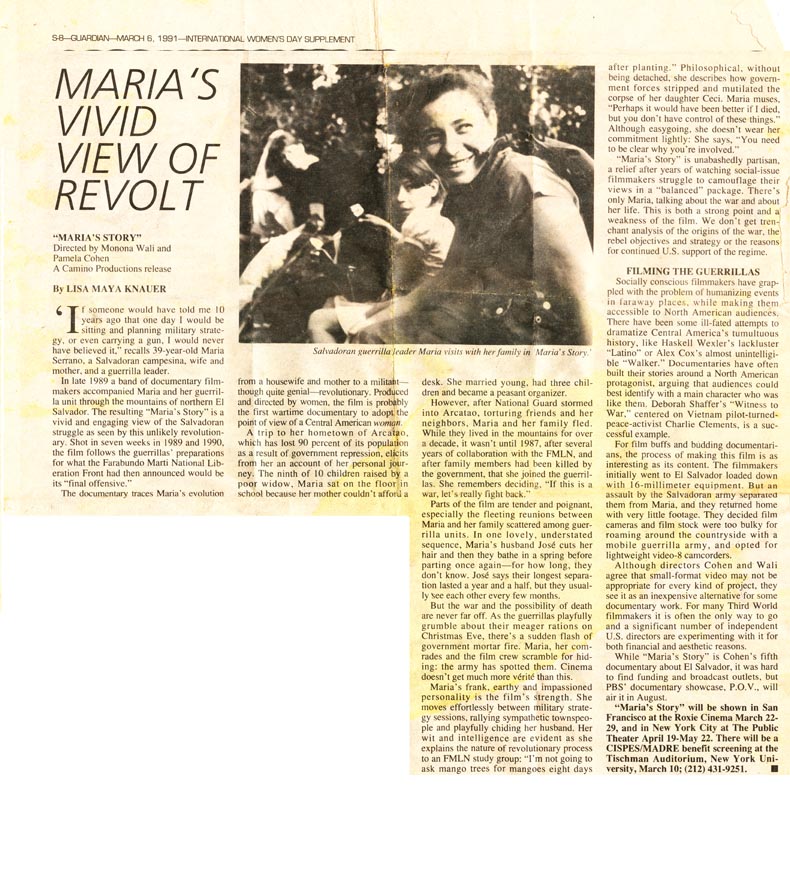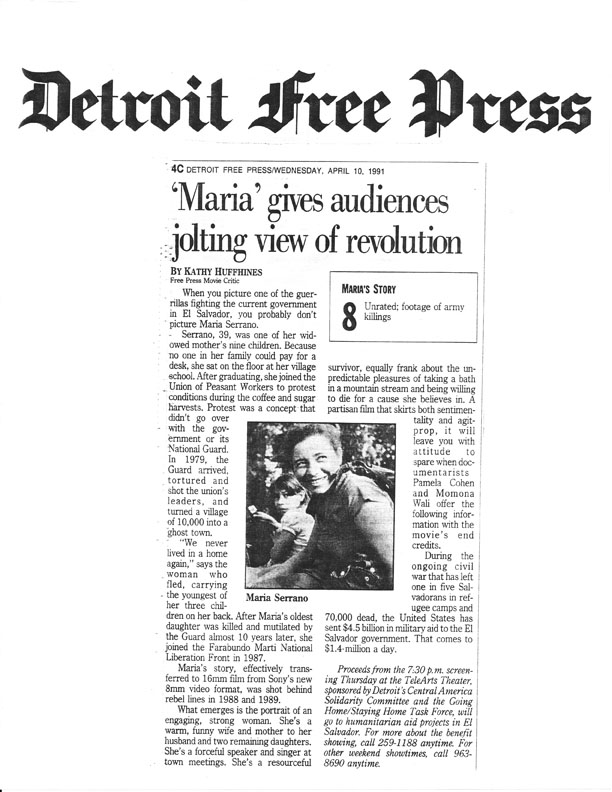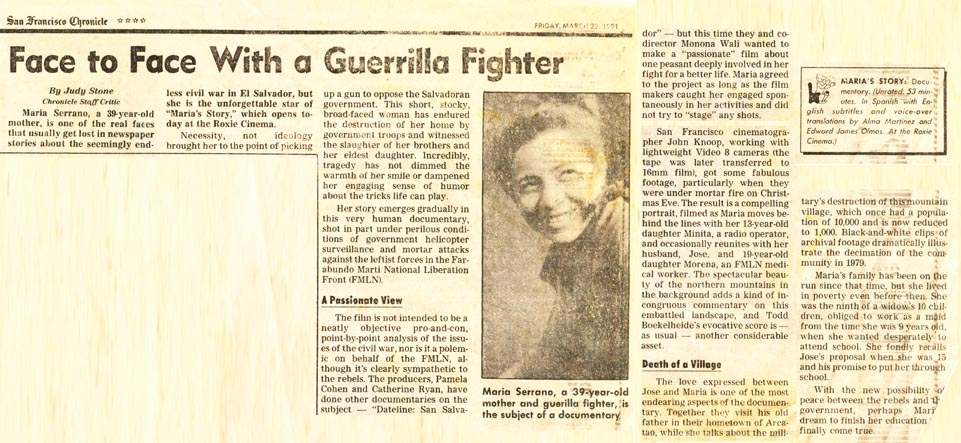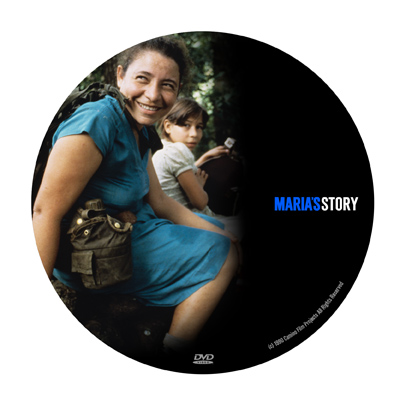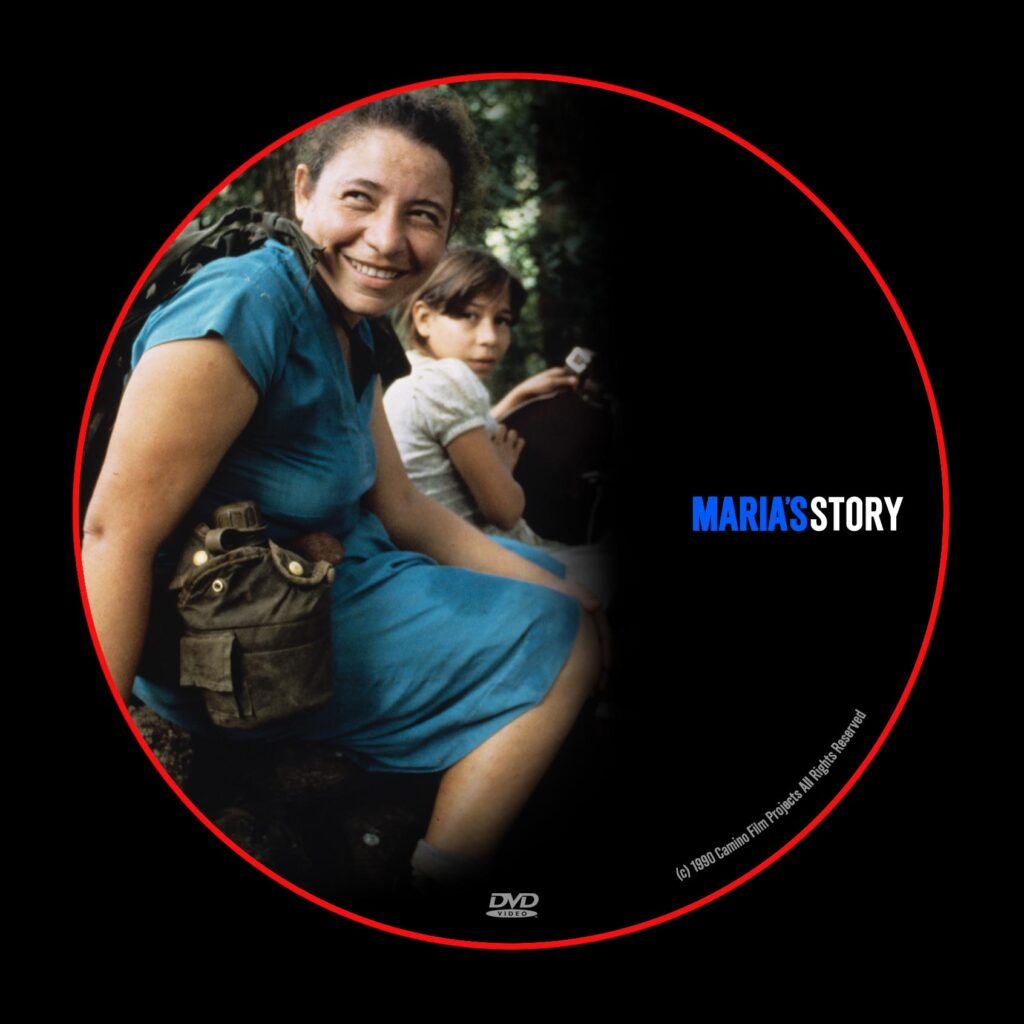Maria Serrano, 39 years old, Salvadoran, wife, mother ... and guerrila leader
Maria's Story
A documentary of love and survival in El Salvador’s Civil War.
The film that helped to end a war.
Produced by Catherine Ryan with Pamela Cohen, Camino Film Projects.
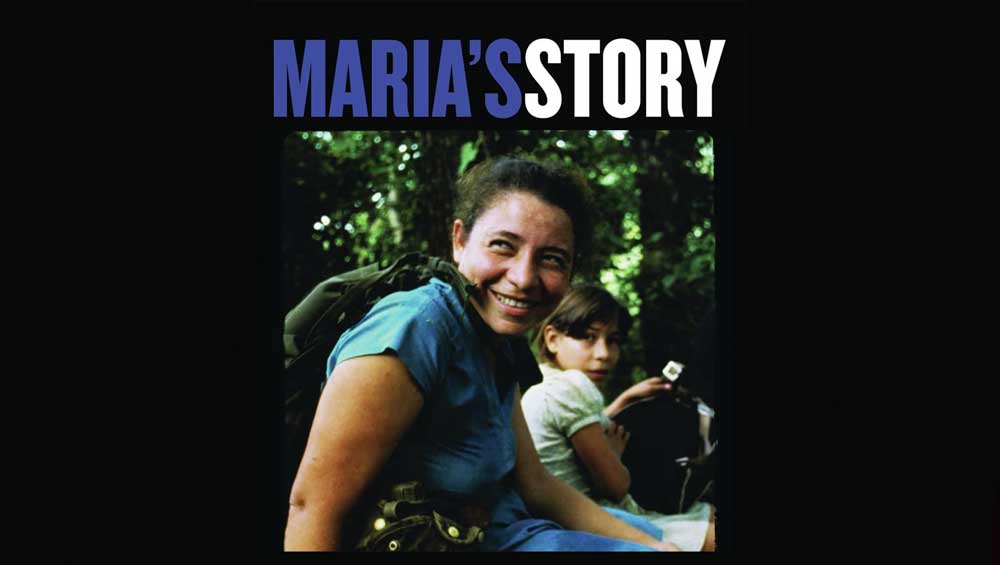

Short listed for
Academy Award


.
“Documentary at its most illuminating and succinct”
–Los Angeles Times
“…as close to combat as one will ever get in the movie theater.”
–San Francisco Examiner
“An emotionally powerful film which communicates from the heart.”
–San Francisco Bay Times
Multiple
“Best Documentary”
film festival awards.
PBS Broadcast
on POV, the prestigious non-fiction series.
.


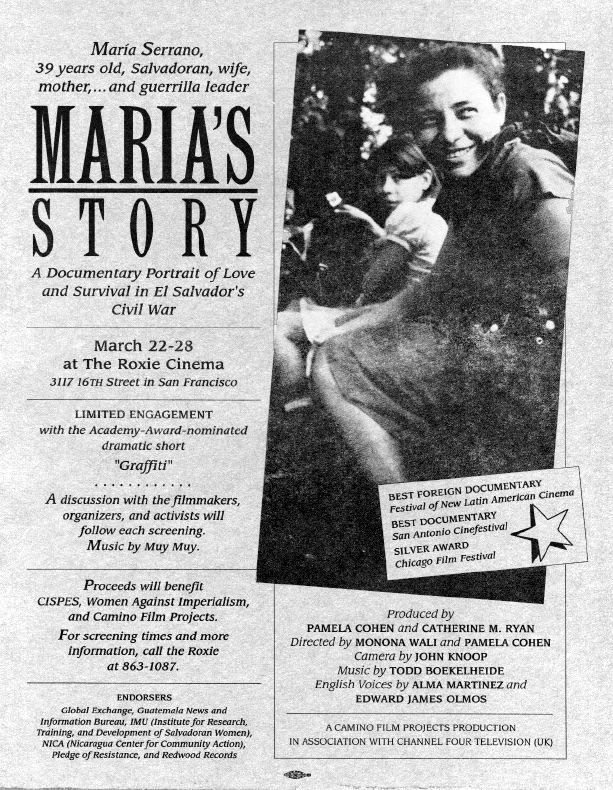
The politically ground-breaking film was cited as the single most important piece of media leading to ending the US funding of the Civil War in El Salvador and the ceasefire and negotiations which ended the war.
The film was also technologically ground-breaking, the first documentary ever to go from a consumer video format all the way to 16mm film for theatrical release and broadcast – thus helping create a new paradigm for grassroots documentary production and distribution.
Reviews
“In selecting their subject, the filmmakers have chosen shrewdly and brilliantly. Physically, Maria is squat and lumpy, but her sense of mission transforms her, and ambling among the people in one small village, joshing and shaking hands, she becomes a figure of almost mythic potency, a potato-sack Joan of Arc priming her troops for the coming battle. Gradually, the film becomes something more than a document of political struggle; it becomes a movie about rising to the call of greatness.”
On the 10 year anniversary of release of the film:
review in El Tecolote,
“Maria’s Story evokes memories and tears…”
“The movie had hardly begun when I started to feel the tears trickling down my cheeks, because this movie is an expression of love for humanity, for the dreams of social justice and for a past of hopes and ideals that have yet to come to fruition.”
More Reviews
About Maria’s Story and the Kino-Eye article: We are so proud of what we accomplished with this documentary in terms of helping to end the civil war in El Salvador. But as documentary film makers we are also proud of our paradigm-shattering use of new technologies to make it. After having failed with a 16mm shoot due to the challenging logistics of filming during a war in the guerilla controlled zones of control in war-torn El Salvador, we returned with a Video8 camera, the smallest workable consumer video camcorder. It is hard to realise it today, but in fact no documentary had ever been made this way before. Maria’s Story was the first documentary ever to go from a small-format video acquisition all the way to film, which back then was the only (and best) viable format for theatrical distribution and exhibition.
Then, to go beyond that to being short-listed for an Academy Award, well, not bad for the little format that could.
BTW – another breakthrough was the solar charger which John Knoop (our talented, visionary, and courageous cinematographer) created for this film, was also ground-breaking for video technology. In preparing for travelling by foot and donkey in the mountains of El Salvador, he had to create a lite weight solar charger that would allow for the 6 weeks of production under war zone conditions with no access to power or additional supply, at a time when no such thing existed commercially.
“… documentary at its most illuminating and succinct…” —LA Times, Dec 7, 1990, for full review click here.
Our cinematographer John Knoop
Photo: Maria and cinematographer John Knoop.
John - a courageous man, a skilled film maker, a dear friend.
John died in his sleep on January 12th, 2017.
links about John
